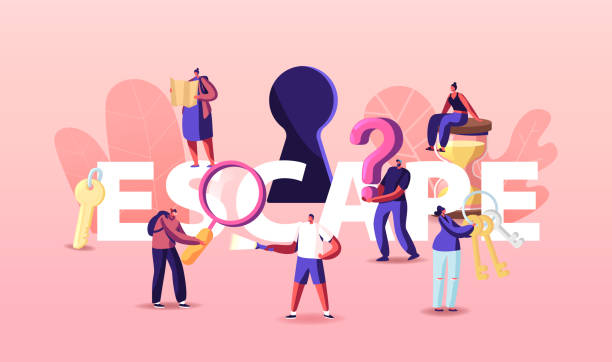
The fear of vulnerability is dread about emotional openness, stemming from fears of rejection, shame, or past hurt, leading to guardedness, perfectionism, and avoidance of deep connection, but overcoming it through small, brave acts builds self-awareness, stronger relationships, and personal growth by showing your true self, even with risks. It’s about accepting imperfection and allowing yourself to be truly seen, a courageous act, not a weakness, crucial for authentic living
.
What it looks like
- Emotional walls: Keeping friends and loved ones at a distance.
- Perfectionism: Striving to be flawless to avoid criticism.
- Conflict avoidance: Softening truths or hiding preferences to keep peace.
- Hiding your true self: Presenting what you think others want to see, not who you are.
- Self-sabotage: Leaving relationships or situations before you can be left.
Why it happens
- Past experiences: Previous rejection, betrayal, or trauma.
- Belief it’s weakness: Thinking vulnerability shows you’re not strong.
- Fear of judgment: Worrying about being seen as inadequate.
- Underlying issues: Linked to abandonment fears or a deeper sense of not belonging.
How to overcome it
- Start small: Practice by sharing a small feeling or opinion with a trusted person.
- Build self-awareness: Understand your feelings, needs, and insecurities.
- Embrace imperfection: Accept your “rough edges” as part of being human.
- Build safety: Discern who you can trust to receive you without judgment.
- Use relaxation: Practices like meditation or breathwork can calm your nervous system.
- Challenge patterns: Gently push back on the urge to hide or retreat, recognizing you have a choice.
The benefit
- Fosters deep, authentic connections with others.
- Increases self-acceptance and self-awareness.
- Allows for true emotional freedom and a more fulfilling life.
असुरक्षा का भय: यह हमें कैसे अलग-थलग रखता है

Vulnerability can create powerful connections, but fear often holds us back. This article explores how the fear of vulnerability isolates us and ways to break free for deeper connections.
Introduction: The Power and Fear of Vulnerability
Vulnerability is often seen as a double-edged sword. On one hand, it is the key to authentic connection, a bridge that allows us to form deeper, more meaningful relationships. On the other, it can be terrifying. The idea of exposing our true selves—our insecurities, weaknesses, and imperfections—feels like standing naked in front of the world, leaving us open to judgment and rejection.
In a world where perfection is often celebrated, the fear of being vulnerable can hold us back from forming the deep, emotional connections that we crave. Whether it’s in romantic relationships, friendships, or even at work, many of us have experienced that inner struggle: the desire to open up and connect versus the overwhelming fear of being misunderstood or hurt.
This article takes a deep dive into the fear of vulnerability, examining how it manifests in our lives, why it keeps us disconnected, and how we can begin to embrace it to build more meaningful connections.
The Root of the Fear: Past Experiences and Societal Expectations
The fear of vulnerability often originates from past experiences where showing our true selves resulted in hurt or rejection. Perhaps we were dismissed as children for expressing emotions, told to “toughen up” or “stop being sensitive.” These early messages shape our understanding of vulnerability as something dangerous, something to avoid.
Societal expectations also play a significant role. We live in a world that often values strength, success, and perfection—qualities that seem incompatible with vulnerability. Social media only amplifies this, showcasing curated lives that appear flawless and seamless. It becomes easy to internalize the idea that we must always appear confident, in control, and unbreakable. The idea of showing any weakness can feel like a risk we’re not willing to take.
As a result, many of us develop a defense mechanism: hiding our true selves behind a mask of strength, success, or superficiality. We become so focused on presenting the image of perfection that we forget how to be human with each other, and, in turn, we disconnect from those around us.
The Disconnect: How Fear of Vulnerability Pushes Us Away
While the fear of vulnerability may seem like a way to protect ourselves, it actually pushes us further away from the very connections we seek. When we hide behind masks of invulnerability, we unknowingly build walls between ourselves and others. These walls make it difficult for people to truly know us, and for us to truly know them.
In relationships, whether romantic, familial, or platonic, this disconnect can be devastating. If we’re afraid to share our emotions, needs, or struggles, we leave our partners or friends in the dark. They may sense that something is off but feel shut out when they try to connect. Over time, this emotional distance can breed frustration, misunderstandings, and even resentment.
At work, the fear of vulnerability can stifle collaboration and trust. When team members withhold their ideas, doubts, or concerns to maintain an image of competence, it prevents true innovation and the sharing of diverse perspectives. Vulnerability is what fosters genuine teamwork, but when it’s absent, the environment can feel cold, transactional, and disconnected.
In short, the more we fear vulnerability, the more isolated we become. The very thing that could bring us closer to others—our authentic selves—is the thing we resist most.
The Desire to Connect: Why Vulnerability Matters
Despite the fear, there’s an undeniable truth: vulnerability is at the heart of all meaningful connections. It is through vulnerability that we allow ourselves to be seen, and it is through being seen that we form deeper relationships. Vulnerability creates a space for empathy, understanding, and mutual support. When we share our struggles, doubts, and imperfections, we invite others to do the same, leading to a more genuine bond.
In romantic relationships, vulnerability is crucial for emotional intimacy. Without it, partners may feel disconnected, unable to truly know one another. The same is true for friendships—when we open up about our lives, challenges, and dreams, we strengthen the bond with those we care about.
Vulnerability also plays a significant role in our own personal
personal growth. When we embrace vulnerability, we give ourselves permission to be imperfect, to learn, and to grow. It’s through our mistakes and struggles that we become more resilient and empathetic. By facing our fears of vulnerability head-on, we can overcome the barriers that keep us from connecting with others—and, more importantly, with ourselves.
Overcoming the Fear: Embracing Vulnerability as Strength
The path to overcoming the fear of vulnerability is not an easy one. It requires unlearning years of social conditioning and past experiences that have taught us to hide our true selves. But the good news is that vulnerability is a skill that can be developed over time, and it starts with small steps.
1. Start Small: Share a Little at a Time
If opening up feels overwhelming, begin with small gestures of vulnerability. Share a personal story or a feeling with someone you trust. This gradual process allows you to test the waters and experience firsthand the power of connection that vulnerability can bring.
2. Practice Self-Compassion
One of the biggest barriers to vulnerability is the fear of being judged. But to be vulnerable, we first need to learn to be kind to ourselves. Embrace your imperfections and accept that you don’t have to be perfect to be worthy of love and connection. Self-compassion is the foundation for allowing yourself to be vulnerable with others.
3. Surround Yourself with Supportive People
The fear of vulnerability often arises from the belief that we will be rejected or ridiculed. To ease this fear, surround yourself with people who are empathetic, non-judgmental, and supportive. When you share with people who create a safe space for vulnerability, you’ll be more likely to open up and form deeper connections.
4. Be Patient with Yourself
Overcoming the fear of vulnerability is a process that takes time. Don’t expect to become completely open overnight. Be patient with yourself and understand that vulnerability is a muscle that grows stronger the more you practice using it.
Conclusion: The Freedom of Connection Through Vulnerability
The fear of vulnerability is a powerful force, but it’s also a barrier to the authentic connections we desire. When we allow ourselves to be vulnerable, we create opportunities for empathy, trust, and deeper relationships. Vulnerability is not a sign of weakness but a testament to our strength and willingness to be seen for who we truly are.
By facing our fears, embracing our imperfections, and taking small steps toward opening up, we can break free from the isolation that comes from hiding behind walls of invulnerability. Vulnerability may feel scary, but it holds the key to a richer, more connected life.Q&A Section: Understanding the Fear of Vulnerability
Q: Why do we fear vulnerability?
A: The fear of vulnerability often comes from past experiences of rejection or hurt, societal pressures to appear strong, and the belief that being open makes us weak or exposed to judgment.
Q: How does vulnerability affect relationships?
A: Vulnerability is essential for deepening relationships. It fosters trust, intimacy, and empathy, allowing us to connect with others on a more authentic and meaningful level.
Q: Can vulnerability really make us stronger?
A: Yes, embracing vulnerability allows us to accept our imperfections and grow from our experiences. It fosters resilience and helps us build more meaningful connections with others and ourselves.
Q: What are the first steps in overcoming the fear of vulnerability?
A: Start small by sharing personal experiences or feelings with people you trust. Practice self-compassion, surround yourself with supportive individuals, and be patient with yourself as you grow in vulnerability.
Q: Why is vulnerability so important for personal growth?
A: Vulnerability allows us to embrace our true selves, learn from our mistakes, and connect with others in a deeper way. It is a vital part of becoming more resilient and empathetic.